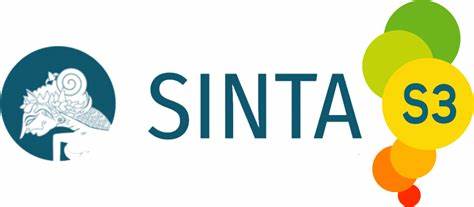THE STUDY CORRELATION BETWEEN READING HABIT AND PRONUNCIATION ABILITY AT THE SECOND GRADE STUDENTS OF IKIP SILIWANGI
DOI:
https://doi.org/10.22460/eltin.v6i1.p46-52Abstract
Language has central role on intellectual development, social, and emotional students to supported success student and learn all of lessons. Literacy level are performation, functional, informational, and epistemic. Performative level means students able to read, to write, to listen, and to speak using symbols. Reading habit refers to the automatic process as the readers read the textual material and deriving meaning unconsciously. A good reading habit is important for the development of personalities and mental capacities. Students reading habit plays an important role in pronunciation mastery. This research used the correlation research. The objectives of the study is to reveal correlation between students’ reading habit and their pronunciation ability at second grade students of IKIP Siliwangi. The finding was supported by the result of students’ scores. The minimum score of habit is 71 and 65 for pronunciation ability. The maximum score of reading habit is 109 and 92 for pronunciation ability. The mean of reading habit is 92.60 and 78.73 for pronunciation ability. Standard deviation of reading habit is 8.85 and 6.31 for pronunciation ability. The researcher finds that the Pearson Product Moment of both variable is 0.373. It means that the correlation between students’ reading habit in English and their pronunciation ability was in low correlation because in the range of 0.20-0.40. From the result of the statistical calculation, it can be synthesized that Null Hypothesis (Ho) is rejected. The researcher concluded that there is the correlation between students’ reading habit and their pronunciation ability.
Â
Keywords: Reading habit, Pronunciation, Correlation
References
Ary, D., Jacobs, L. C., Sorensen, C. K., Walker, D. A., & Razavieh, A. (2010). Introduction to Research in Education. Measurement (8th ed., Vol. 4). Canada: Nelson Education. Ltd.
Dornyei, Z. (2003). Questionnaires in Second Language Research: Construction, Administration, and Processing. New Jersey: Lawrence Erlbaum Associates, Inc. https://doi.org/10.1016/j.system.2011.06.001
Gaona, Julio Cesar Galacia. (2011). Relationship Between Reading Habits, University Library and Academic Performance in a Sample of Psychology Students, Superior Journal, Vol. XL (I), No. 157, 2011, pp. 59-60
Grabe, W. and Stoller, F.L. (1997). Reading and Vocabulary Development in a Second Language: A Case Study. In Annamalay and Muniandy. 2013. Reading Habit and Attitude among Malaysian Polytechnic Students. International Journal of Education and Sciences. 5(1), 32-41
Lorange, Astrid. (2014). How Reading Is Written. A Brief Index to Gertrude Stein: Wesleyan University Press.
Neal, D.T., Wood, W., and Quinn, J.M. (2004). Habits –A Repeated Performance. Current Direction in Physiological Science. 15 (4).
Ogbodo Rosemary Ochanya (2010). Effective Study Habits in Educational Sector: Counseling Implications, Edo Journal of Counseling, Vol. 3. No. 2, 2010, pp 231-235
Shen, L. (2006). Computer Technology and College Students' Reading Habits. Chia-Nan Annual Bulletin, 32, 559-572.
Yusmita, A. and Anggraini, N (2017). The Effects of English Songs on the Seventh Grade Students’ Pronunciation Achievement in SMP Srijaya Negara Palembang, Jurnal Bahasa dan Sastra, Vol. 6 (1), 1-20.
Zwiers, J. (2004). Builiding Reading Comprehension Habits in Grade 6-12. Sanfransisco, CA: International Reading Association





